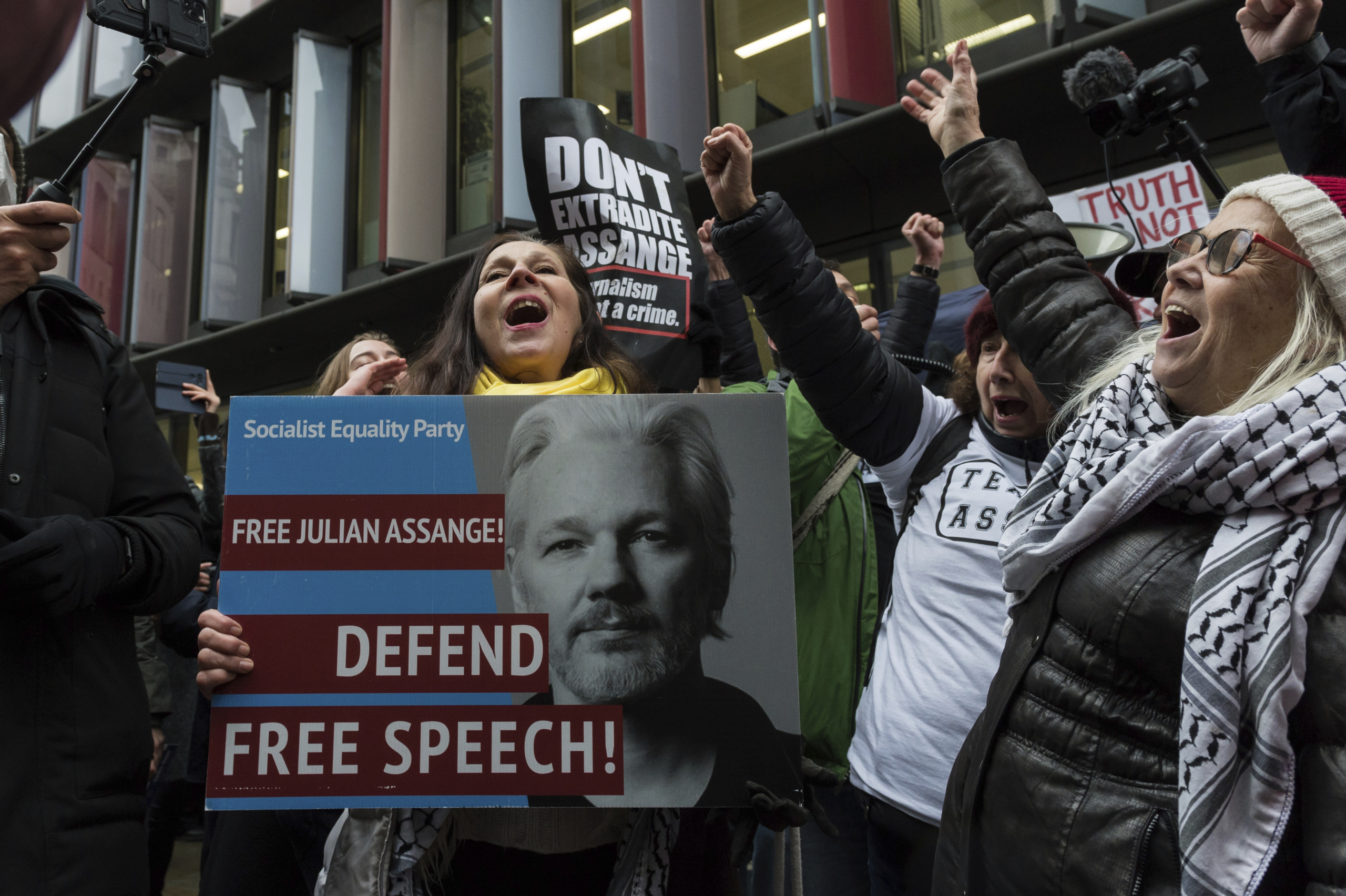Sign up for the daily CJR newsletter.
Last week, a British judge ruled that Julian Assange could not be extradited to the United States, finding that he would likely be subjected to conditions of confinement so harsh he’d be at grave risk of taking his own life. The judge also determined that the charges against Assange did not constitute an attack on press freedom, a move that riled journalists and free speech activists across the globe. “We disagree with the judge’s assessment that this case is not politically motivated, that it is not about free speech,” the international campaign director for Reporters Without Borders told the New York Times. Owen Jones, a columnist for The Guardian, wrote, “This was the right decision, but for the wrong reason.”
Monday’s ruling did not establish a precedent for protecting whistleblowers. While that’s important to highlight, the argument put forward by press freedom advocates presumes that the “political” nature of the charges is the only issue at stake. The conditions of confinement Assange would have likely faced once extradited, however, pose a threat to free speech in their own right.
Judge Vanessa Baraitser didn’t rule as she did because of inhumane conditions in the federal prison system overall. Rather, her finding focused almost exclusively on how Assange might fare were he subjected to a specific set of restrictions known as Special Administrative Measures (sams). sams are gag orders placed on a very small number of federal prisoners or detainees, either pretrial, post-trial, or both. They are imposed at the discretion of the attorney general when he or she believes there’s a “substantial risk” that the communications of an incarcerated person could pose a public threat.
The measures vary from person to person. Generally, though, sams prisoners are prohibited from communicating with anyone in the world except their immediate family members and their attorneys. They have minimal access to the news; books must be preapproved. Apart from letters and phone calls with family, sams prisoners can go months without human interaction. “Sometimes the unit feels like a graveyard,” one person said of the experience. “There is no sound, and everyone is in his grave.”
sams also pose a grave risk to free speech. Anyone in touch with a person subject to sams is likewise gagged, meaning an attorney, spouse, or sibling can be criminally prosecuted for passing along what a prisoner has said, whether that’s something as insignificant as what the prisoner had for breakfast or as consequential as reports of force-feedings.
I know from experience that sams have a real and substantial impact on press freedom. In 2019, in partnership with Type Investigations, I published a cover story in The Nation about hunger strikes and force-feedings at a unit dedicated to housing sams prisoners post-conviction. Between 2005 and 2016, prisoners on the unit held hunger strikes almost continuously, and prison officials responded brutally—yet these protests had never been reported on in depth. (My piece relied on the testimony of someone since taken off sams.) In making it impossible for journalists to report on conditions in real time, sams create a black box in the federal prison system. Administrators and guards don’t fear public accountability, because they know reporters will never get inside.
From one point of view, sams provide de jure cover for the de facto censorship that occurs in every prison, jail, and detention center across the United States. Examined from another perspective, sams pose a particular and unique risk to the press. They are essentially imposed at will. There is no evidentiary standard the Department of Justice must meet to impose the measures. Nor does any meaningful oversight system keep the attorney general in check. And once subject to the measures, individuals can live under them for a decade or more.
Given the opacity with which sams are imposed, we can’t know if those subject to the measures pose an actual threat to the public. What we do know is that many people on sams carry powerful truths, things they’ve experienced or learned that, if disclosed, would embarrass US law enforcement and intelligence agencies or bring them under heightened scrutiny. I know, from my own reporting, that current and former sams prisoners were tortured at US black sites and abused at the hands of foreign governments with the alleged support of the US. When will we hear their stories?
At Guantánamo, attorneys can visit their clients, hand their interview notes to government censors, and get some version back that can be released. Not so for prisoners subject to sams. If Assange had been extradited and placed under sams, he would be silenced indefinitely. That is no small matter. These restrictions not only hinder reporters from investigating prison conditions, they also prevent us from holding intelligence and law enforcement agencies to account.
Thankfully, we may soon have an opportunity for reprieve. As president, Joe Biden could revamp the regulations that govern sams or simply instruct his attorney general not to impose them. We can’t control the findings of the British judicial system. What we can do is influence when and whether sams are imposed. As journalists and press freedom advocates, we have a responsibility to do so.
THE MEDIA TODAY: Remember Trump’s first impeachment while covering his second
Has America ever needed a media defender more than now? Help us by joining CJR today.







